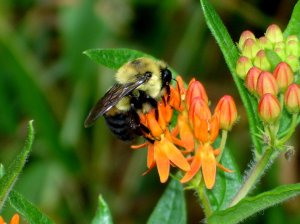The Business of Bumble Bees: A Look at the Relationship Between Business and Biodiversity Loss
Small though they may be, bumble bees play a large part in the environment. As pollinators, bees assist in the reproductive process of flowering plants, including crops that produce food, fiber, drugs, and fuel. More than a third of the world’s crops rely on bees as pollinators, which makes the population decline of bees in recent years particularly alarming. In their article, “Invisible Compromises: Global Business, Local Ecosystems, and the Commercial Bumble Bee Trade,” published in Organization & Environment, authors Carol Reade, Robin Thorp, Koichi Goka, Marius Wasbauer, and Mark McKenna use the bumble bee trade as a lens to explore the complex relationship between global business and ecosystem health, including biodiversity loss. In addition, the article explores ways that businesses can adopt more sustainable practices.
The abstract:
The purpose of this article is to challenge organizational scholars, management educators, and business leaders
to consider more deeply the impact of global business activities on local ecosystems. Drawing on the management, sustainability, and entomology literature, we illustrate the complex relationship between global business and biodiversity loss through the lens of the commercial bumble bee trade. Global firms in this trade rear and supply bees for greenhouse crop pollination. We build on a well-known global strategy framework used in management education by adding a sustainability dimension, and offering propositions for the relationship between global business strategy and the strength of environmental sustainability. We conclude that a locally responsive, place-sensitive business strategy supports the strongest degree of environmental sustainability, and addresses the invisible compromises to ecosystem health that may result from the efforts of global firms to provide otherwise beneficial products and services.
You can read “Invisible Compromises: Global Business, Local Ecosystems, and the Commercial Bumble Bee Trade” from Organization & Environment by clicking here. Want to be notified of all the latest research like this from Organization & Environment? Click here to sign up for e-alerts!






















































































